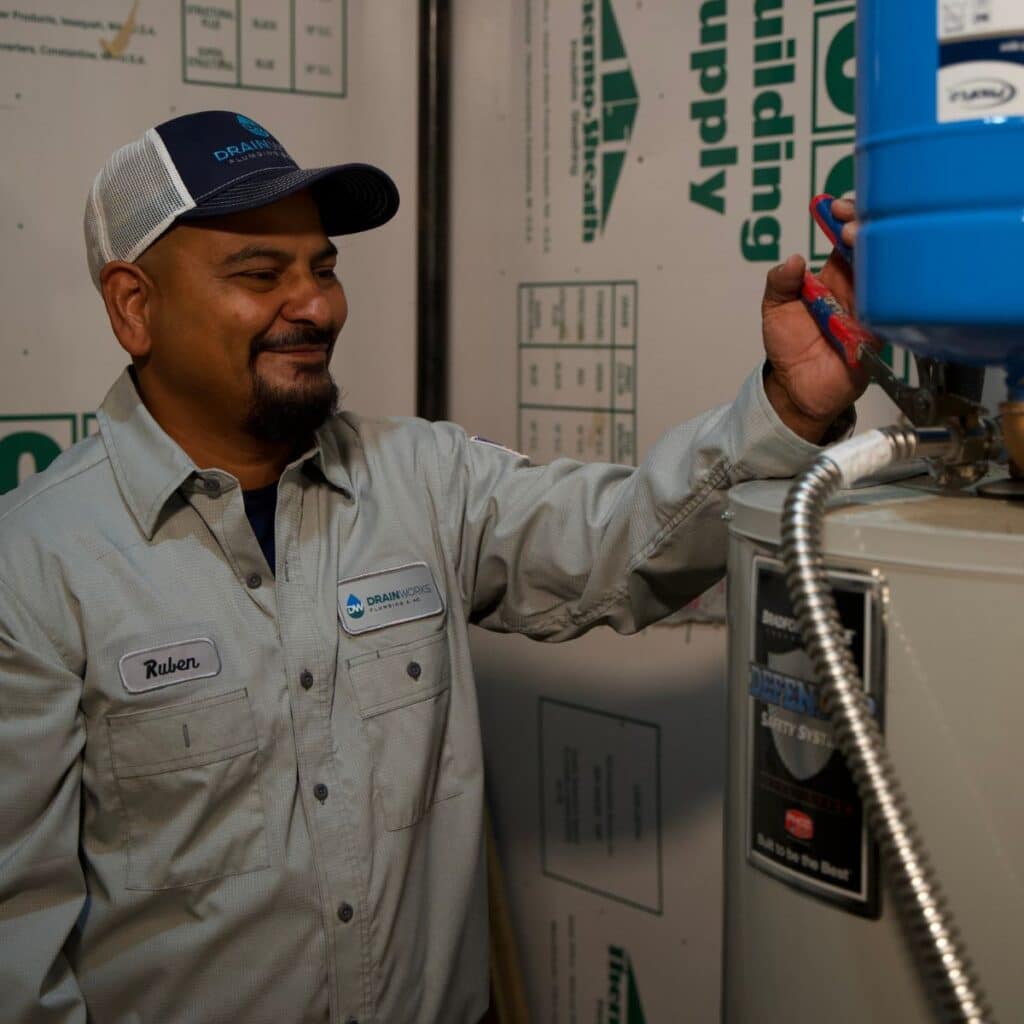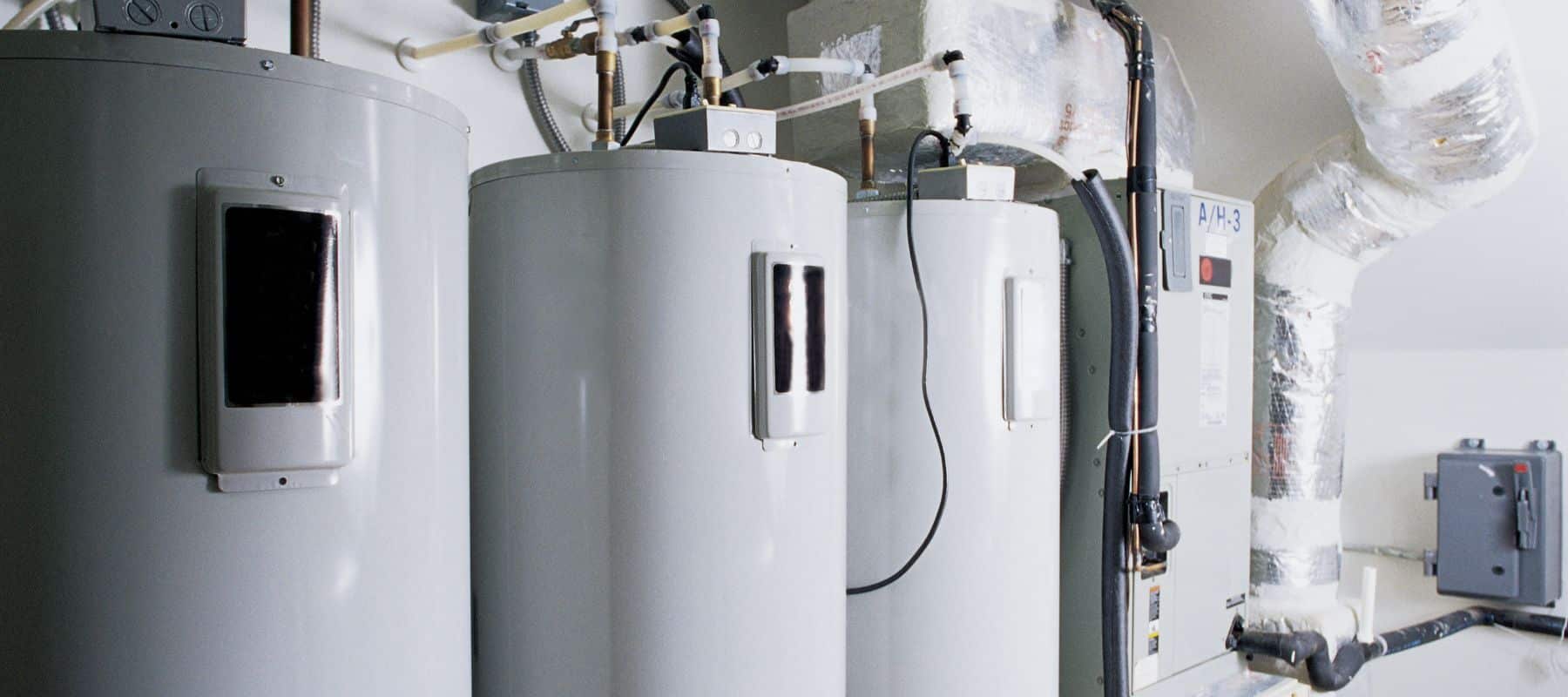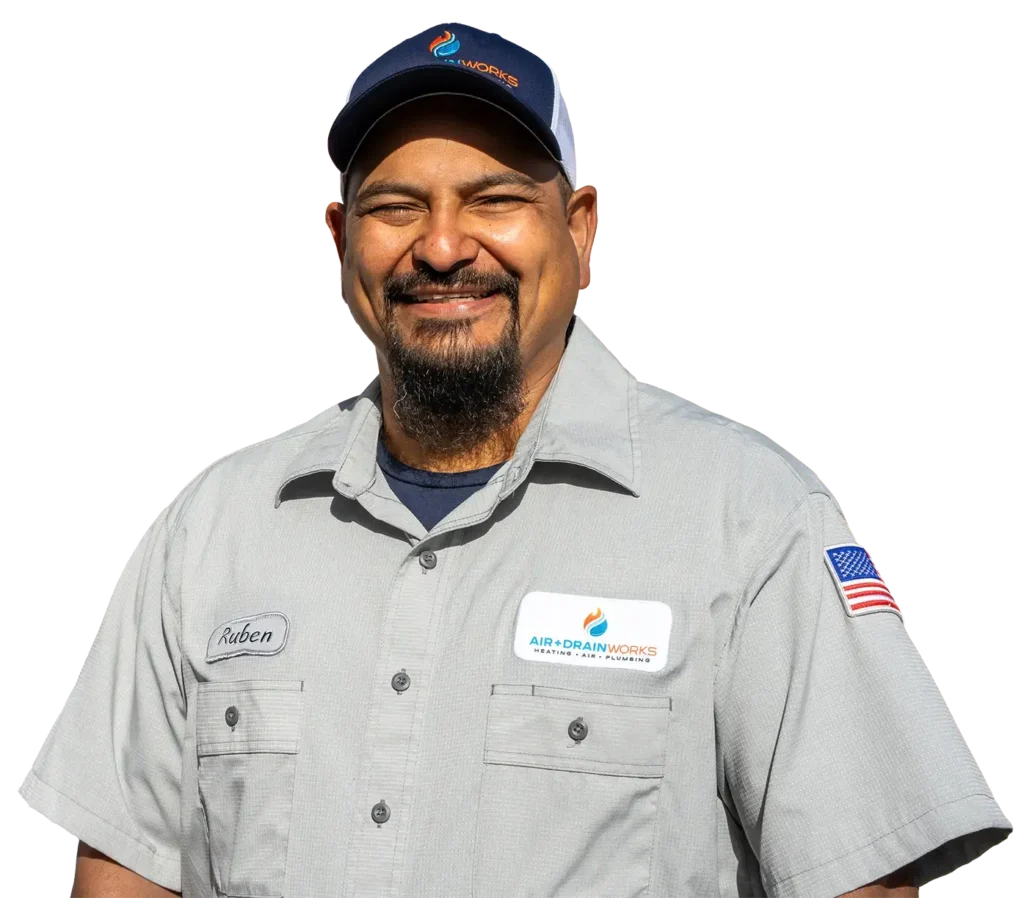Water Heater Installation Services
The hot water tank is one of the most tried and true components of the modern home today. They’ve been reliably heating water since the late 1800s, and the technology has only gotten more refined with every year.
While they make our lives more convenient, they’re designed to be forgotten about, being tucked away in garages and closets. It isn’t until we find ourselves forced to take a hot shower as we rush to get ready for work that we truly appreciate or even think about how convenient water heaters make our lives.
When things go wrong and you have to think about your water heater for the first time in years while standing in a cold shower, Air & Drain Works will be here with decades of accumulated hard work and expertise that you can rely on.
Cold Shower Have You Nervous? We’ve Got Your Water Heater Service
Air & Drain Works serves the homeowners of San Antonio with reliable and hasty water heater services. From water heater replacement to timely repairs and maintenance, you can count on us to know your unit inside and out. When you need plumbing services, don’t hesitate to call on Air & Drain Works!
San Antonio Water Heater Repairs
Water heaters use fairly simple technology. At the base of things, you have a water source, a tank, a heat source and its ignition components and the piping that holds everything together.

This simple design is not only efficient but also means that there aren’t many points of failure. Our team has seen every water heater problem and has a solution for them all. Some of the most common water issues our team encounters are:
- Thermostat issues
- Heating element problems
- Water leaks
- Faulty pressure release valves
- Sediment removal
- Anode rod replacement
Regardless of the severity of the water heater problem you’re facing, we guarantee that our team can find a solution for you. If your unit is beyond fixing, we’re the best source of quality water heater replacement you can find.
With our recommended AO Smith units, we’re proud to install products with second-to-none build quality installed with a level of expertise and care that’s impossible to match.
Hot Water Heater Maintenance
One of the best ways to avoid annoying repairs and premature replacements is by investing in and being diligent about your water heater maintenance. We recommend that you have your water heater flushed at least once every six months to prevent buildup and to give your components the best chances to function optimally.
Fortunately, with our service membership, we provide an annual water heater inspection and flush so that you have one less thing to worry about when it comes to home maintenance!
Hot Water Heater Replacement
Even with perfect maintenance, nothing lasts forever. With the average hot water tank, you can expect about 10 to 15 years of service. If your tank is getting up there in years and you want to avoid the inconvenience associated with unexpectedly not having hot water, we recommend you replace your unit with one from AO Smith that’s guaranteed to stand the test of time.
San Antonio’s Hard Water Concerns
The water in San Antonio is especially hard, ranked as one of the most severe areas in the entire country for hard water minerals. With water regularly rated very hard, it’s a guarantee that your home is suffering from the long term effects of these minerals. This includes your water heater!
The buildup and deterioration of hard water over time can decrease the lifespan of your water heater. When considering how often to replace your water heater, speak with one of our specialists about water softener installation and the effect of hard water on your water heating system.
Have You Considered Tankless?
If you’re having to replace your water heater anyway, now is the best time to ask yourself if switching to a tankless water heater might be the right move for you.
Providing a space-efficient alternative to the standard tanked water heater, tankless heaters have the potential to offer your family an unlimited supply of hot water. With our offerings from Rinnia — the No. 1 tankless heater in the U.S. — you can rest assured that you’ll be getting the best in the industry.
Price Assurance Guarantee
We’re so confident in our plumbing expertise that we offer a Price Assurance Guarantee. If you receive a lower quote for identical services from another reputable provider, we’re willing to consider reducing our price. We may adjust our fee by up to 10% of the price difference. This pledge reflects our commitment to delivering premium plumbing solutions at competitive rates, ensuring you get top-quality service without overpaying. Choose us for unbeatable value in home plumbing services!
Air & Drain Works: Your Water Heater Leader
Whether you’re looking for the best water heater repair San Antonio has to offer or need your entire plumbing system inspected by the eyes of a trained professional, Air & Drain Works is your local team. We strive to be the most comprehensive plumbing solution in the area, so don’t hesitate to call us today!
More Plumbing Services
Bathroom Plumbing
Reclaim your oasis with bathroom plumbing solutions!
Commercial Plumbing
Let our business support yours with stellar plumbing!
Gas Line Plumber
Choose the team that thinks of your safety first!
Kitchen Plumbing
Turn plumbing hassles back into the hub of your home!
Leak Detection Services
Stop those leaks in their tracks with specialized services!
Plumbing Repair
When your home feels like a water park, call Air & Drain Works!
Slab Leaks
Feel confident in the foundation beneath your feet!
Tankless Water Heaters
Ditch the tank — it's time for unlimited hot water!
Water Softeners + Filtration
Water filtration solves — each glassful is clean and fresh!
Whole-Home Repiping
Trust the pros to replace pipes in your home effectively!












